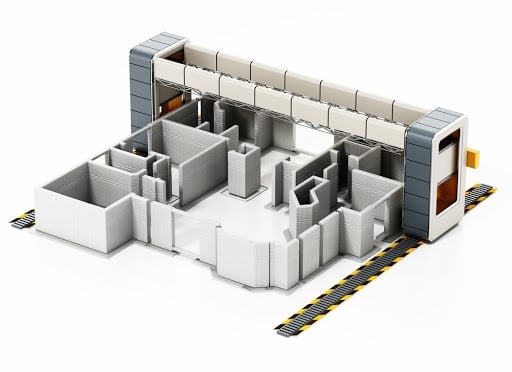Starting a franchise business is a great way to become your own boss.
And it has a perception of being a much simpler form of business than starting your own business entirely from scratch.
To an extent, that line of thinking is true. However, franchising is certainly not for everyone.
Below are a handful of questions to ask yourself, and the franchisor, before you commit to a franchise business:
#1 - Are you actually ready to start your own business?
When joining a franchise group, you’re essentially paying and establishment fee and ongoing royalties for the simplicity of a proven system within which to operate your business. You still need to operate the business! Franchise failure rates are lower than stand alone businesses. But individual owners still fail.
Understand that when buying a franchise business, you are buying into a system. You're not buying into a passive income earner.
#2 - Are you willing to follow the franchise system 100%?
You’re ready to start a business, but is a franchise system the best business for you? These groups have their own established systems to run the business. They often have an “if it isn’t broken, don’t fix it” mentality. And they also have existing brand equity built up.
Here’s a little reality about franchising in general: your franchisor is going to protect their brand equity at all costs. Meaning, innovative ideas from a spritely new individual franchisee that step too far outside “the way it’s always been done” may not mesh well with the overall brand aspirations of the franchise group.
If you are an innovator and someone who likes to tweak an existing system as opposed to following it, franchising may not actually be the best fit for you.
#3 - Will you enjoy the franchise?
If you're not going to enjoy running the business for the next 10 years, why start? For most entrepreneurs, money is not a main driver for success.
You do not need to have a love of sandwiches to join a Subway franchise. Your passion might be aligned to what the brand represents or an outcome of the business operations that excites you as opposed to the product itself. Building a business around a passion isn’t necessarily easy to do, but if given the choice, why not?
Things are going to be tough on more than one occasion, you’re going to burn out like any other entrepreneur and you’ll need to push on no matter what. May as well enjoy the business!
Make a list of the companies you find most interesting and research them extensively. Pay attention to how well they align with your core values and which ones actually illicit a feeling of excitement or commonality. Chance are, those are the ones that align best with you as an individual.
#4 - Do you like the franchisor and head office staff?
Some franchise communities are incredibly supportive and feel almost like families, and having a community like this can really help you build a successful business. Others are highly-commercial, almost standoffish in nature and have a profit-first mentality.
As you’re dealing with the recruitment staff and potentially visiting corporate offices, pay attention to the workplace morale, the efficiency and the nature of interpersonal relationships. You can tall a great deal out about a company by the way the staff act.
Questions to ask of the Franchisor
A franchise business you're considering has obviously been successful enough to catch your attention, but just how successful have they been?
The issue for newbie business owners and potential franchisees is knowing what to look for and they type of questions to ask. Below is a short list, which is by no means exhaustive, of probing questions you can ask your franchisor as part of your due diligence.
#5 - How long have the directors and senior Franchisor staff been doing business and how long have they been involved in this franchise?
Director changeover can certainly impact business. Change is not necessarily bad thing, in fact it may be a good thing, but it pays to know if change is, or has been, in the air for the group.
#6 - How many of the Head Office staff, if any, have franchise ownership experience?
It’s one thing working for the franchise, it’s a completely different working in a franchise. Experience “in the trenches” is a fantastic bonus for head office staff to have as they’ll be able to deal with you from the perspective of experience.
#7 - How many locations have they successfully kept open beyond the initial term of the Franchise Agreement?
Franchisee retention gives you a great insight into the viability of the business. A franchise outlet may not close down due to running out of money, but non-renewal is a potential sign that some Franchisees have made enough to survive, but not enough to warrant signing on for another term with the franchise.
#8 - What is the current growth plan by way of new franchise outlets in your potential franchise area?
It’s bad enough having competitors from other business and franchise groups near your location, it’s even worse having another franchisee from your same group competing with market share.
#9 - Are the franchisees happy and successful?
The disclosure document you receive when you're interested in joining a franchise will include a list of current franchise owners. Your franchise recruitment contact will also likely give you some recommended franchisees to talk to. Reach out to a few of them and ask them some questions about their experience with the franchise and if they enjoy running the business.
Big tip – As you’re talking with Franchisees, aim to speak with a range of new, well-established, likely profitable and likely unprofitable franchisees. You’ll be surprised how much valuable insight you can gain from franchisees.
It’s not that the franchisor is going to be dishonest and sell you on only the positives, but franchisees on the ground will typically be far less guarded in their responses to your questions as it’s not their job to sell you on why you should buy.
DISCOVER MORE BUSINESS STRATEGIES ON CAPITALISM.COM:
• 5 Surprising Advantages of Outsourcing Your CMO
• While Trump Vows to Bring Jobs Back, Skilled-Labor Shortages Worsen
• 7 Questions You Need to Ask Yourself Before Agreeing to a Partnership











